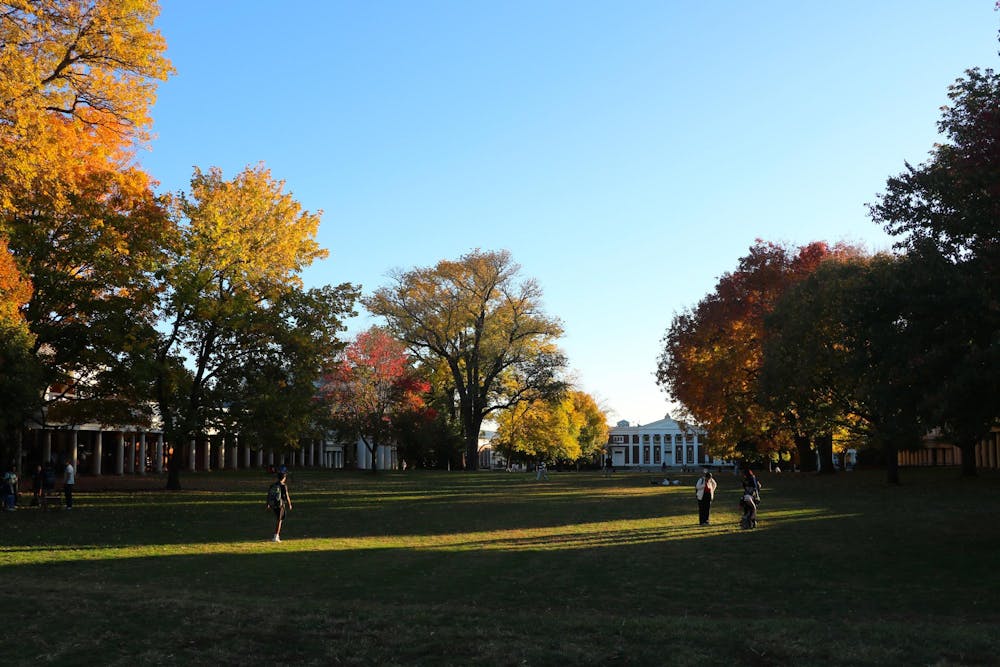The University finds itself performing a delicate dance as it navigates a changing relationship with the federal government — one step of defiance, another of compliance. In rejecting the Trump administration’s “Compact for Academic Excellence in Higher Education,” yet signing a separate compliance agreement with the Department of Justice, the University has tried to walk the line of maintaining academic freedom while retaining their access to federal funds. The question is whether that balance can hold.
Only days after announcing the rejection of the Compact the University entered a settlement with the DOJ. Under this agreement, the University committed to align itself with the DOJ’s guidance on non-discriminatory finance and admissions practices, to submit compliance data until 2028 and to abide by the administration’s interpretation of civil rights law in exchange for the suspension of five ongoing civil rights investigations into the University. Importantly, unlike the previous Ivy-league settlements that saw universities pay monetary fines and accept external monitors, the University’s deal carries no fine nor an external monitor — but it nonetheless binds the University in significant ways.
To many, the agreement reads as a pragmatic move — avoid the expense and publicity of extended litigation, keep federal funds flowing and move on. But pragmatism has a price. The very existence of the agreement acknowledges that the federal government can extract concessions from the University through the threat of litigation or funding withdrawals. The Trump administration's critics have warned that any dubious dealing with the federal government sets a dangerous precedent, one where universities feel compelled to accept federal definitions of fairness that may narrow academic debate or discourage programs that may be ideologically discomforting.
Previous interventions have pushed the University of Pennsylvania to limit transgender participation in athletics, whereas Johns Hopkins University has launched a mentorship initiative for conservative students interested in academia. These actions illustrate how federal interference can reshape university priorities in ways that reflect external agendas rather than institutional autonomy.
While students and faculty have expressed relief that the University avoided harsher penalties, others also expressed unease about entering into a three-year agreement with an interim University president and a gubernatorial election coming up. Stakeholders at the University may be worried that the obligation to justify every step of hiring and admissions processes may force University administrators to preempt anything that even threatens bureaucratic intervention by conforming to whatever agenda they believe expected of them — a kind of self-censorship that need not even require overt interference. That fear undermines the University’s ability to exercise its academic autonomy and pursue a curriculum based on its own terms.
In his official statement to the University community, Interim University President Paul Mahoney sought to reassure skeptics. He insisted that the agreement preserves academic freedom on Grounds and that it does not require the University to change its values or its mission statement. Mahoney’s emphasis on the University’s commitment to freedom of expression and ideological diversity remains promising. However, words alone cannot insulate the University from quiet pressures of political oversight. What matters is that our commitment to these values holds not merely in principle but in daily practice. The deeper danger here is not of overt censorship, but subtle drift.
Once the University begins filing its reports to prove neutrality, every controversial program, every hiring decision and every research topic could be viewed through the lens of risk management rather than academic value. Over time, the institution may internalize the logic of oversight — avoiding controversy not because it is wrong, but because it is inconvenient. And while the University may believe that it can manage this relationship on its own terms, history suggests that government oversight rarely remains static. A deal made to end investigations today can easily become a precedent for expanded demands tomorrow.
At the same time, it would be naive to dismiss the University’s position as cowardice. The University is a public institution and relies on federal funds for a vast portion of its research and student aid. A prolonged legal battle with the DOJ could undercut those resources and expose the University to additional sanctions — risks that a responsible administration cannot ignore. In rejecting the Compact, Mahoney’s administration demonstrated courage. In accepting the DOJ settlement, it demonstrated realism. The real challenge lies in ensuring that realism does not shade into capitulation — and that will require more than just reassurance.
It will require transparency about compliance, what data we report and what safeguards are in place to prevent federal definitions from substituting for academic judgement. It will require the University to affirm that its faculty retain control over their curriculum, that research agendas are not shaped by political fashion and that inclusivity will continue to reflect the University’s values and not the whims of Washington. Above all, it will require vigilance from students, faculty and staff to ensure that the promise of academic freedom remains a living practice and not a ceremonial phrase. The University has long prided itself on being a place where truth is pursued “wherever it may lead.” That pursuit cannot coexist with oversight that rewards conformity.
The University is now dancing between rejection and appeasement. It must not lose its rhythm — and it must never lose itself.
Muhammad Ali Rashid is a senior columnist for The Cavalier Daily. He can be reached at opinion@cavalierdaily.com.
The opinions expressed in this column are not necessarily those of The Cavalier Daily. Columns represent the views of the authors alone.







